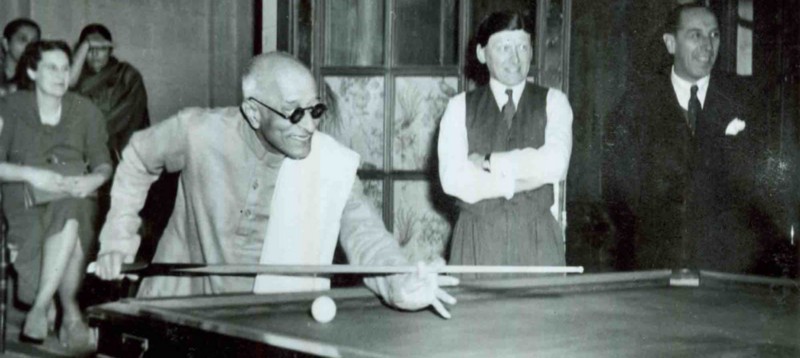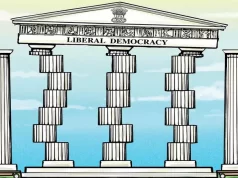Before I begin I, along with you all, must tender our grateful appreciation of the splendid work done by Mr. Masani and his colleagues for making this eventful gathering possible in this inclement season of the year in Bombay. I have been asked to inaugurate this convention of the Swatantra Party. I do it with great pleasure as well as with a due sense of responsibility. I am not inaugurating merely a party. I think we are inaugurating a movement of freedom. Forty years ago, when I was forty years old, after twenty years’ practice at the Bar, and twelve years of political life in connection with the Congress and the Nationalist Party of that time and the Home Rule Movement, I joined the Non Cooperation Movement in close collaboration with and under the leadership of Mahatma Gandhi. Now when I am twice that age, I am leading a revolt against what I have come to believe to be a fatally wrong direction taken by the Indian National Congress in the governance of this great country. I have come to the conclusion that a movement for freedom, as important and as serious as the movement for independence against British rule, has now to be inaugurated against this misconceived progress of the Congress towards what will finally end in the suppression of individual liberty and the development of the State into a true Leviathan.
The State is becoming a giant entity by itself menacingly poised against the citizen, interfering with his life at all points, mistrusting the people, imposing restrictions, introducing a series of controls and regulations, stepping into the fields of agriculture, industry and trade, creating an army of officials, tremendously increasing the cost of administration and therefore the taxes paid by the nation, hypnotizing the people with slogans that are mistaken for thought and wisdom, a scheme of Government in which it is taken for granted that the citizen is ignorant of what is his own interest.
My criticism of the Congress policies and tendencies and their inevitable consequences is strong but not exaggerated. My criticism of the ruling party’s present policy is this: You begin with a false conception and make promises on that basis which are necessarily incapable of performance; then your sympathetic critics want you to hr more efficient than you are and to do the impossible and you are led to make more promises in place of the old promises. The whole business which is faulty at the base and in the superstructure leads to the people being made victims of one deception after another. For example, you promise to put ceilings on land holdings in the hope of making by compulsion when bhoodan is trying to make by willing surrender. You give up the idea of making gifts and in view of the criticism of agricultural experts you propose to substitute co-operative farming for individual cultivation. That you meet objections to compulsory collectivization by announcing that it will all be voluntary and will not be enforced collectivization. In order to overcome popular objections you plan subsidies and other inducements at the cost of the nation in order to build up a case for successful co-operative farming. I have illustrated what I said first in strong and general terms.
There is no morality in creating an impression that the landless will get land as a result of the policy of land ceilings and yet that deception is the basis of whatever hold the Congress has now in the rural area. The Attorney General’s recent speech at Bombay is a scathing indictment clothed in the language of a trained lawyer and gentleman, addressed to an enlightened audience in an atmosphere charged with gentleness. He has exposed the fatal weakness in the present regime and has made out an unanswerable case for an opposition party such as ours to come into being. He has not expressly welcomed the emergence of this party but what he has said amounts to it. He finds fault with the public and the professions for their apathy and silence. He could have gone deeper down and explained the reasons for this silence and absence of opposition. The secret lies in the octopus-hold which the ruling party has seared on men and their lives and occupations in the name of Socialism and a march towards the socialistic goal. He said that the officials are not doing their duties properly. Why? For the same cause. We should remove the cause and not hope to achieve anything by treating the symptoms.
We all know how power corrupts. It is a cliché but it is true. There are two types of this corrupting power in action. At the top the ruling party and its chiefs have secured position and power to make or attempt to make basic changes in the structure of society, imagining that they can achieve revolution without revolution. Illusion and megalomania are the consequences of this corruption produced by power at the top. They attempt to change the personal laws as to succession making fundamental changes which must totally dislocate the structure of life at the very base. This is a capital example of exhibitionism and thoughtlessness. They desire to banish religion and God from Indian life. They seek to regulate life in fields where regulation was unknown. They seek to disturb the fundamental agricultural economy of our country. The party system and the totalitarian position of the ruling party deprive the Government of all effective checks in the implementation of these un-wise programmes. I attribute the unwisdom to the corrupting influence of power and want of faith in the people, the assumption that people are ignorant and are not likely to do the right thing unless compelled.
The second type of corruption by reason of power is at the lower levels of the party, where bosses and important elements in the political machine interfere with justice in the executive administration. Officials have lost their old courage in standing up to political pressure. I need not expatiate on this. It is one of the most widely felt evils and if there is one reason more than another which has brought the Congress into disfavor, it is this.
The ruling party must be replaced by a party that will respect the freedom of the individual. The Swatantra Party stands for this freedom. It stands for individual initiative and enterprise. State initiative, except where it is conceded to be necessary, amounts to compulsion. Compulsion kills initiative, and regulation kills interest and responsibility. We want all policies to be based on the faith in people as the moral foundation of government, discarding compulsion.
Post Disclaimer
The opinions expressed in this essay are those of the authors. They do not purport to reflect the opinions or views of CCS.





